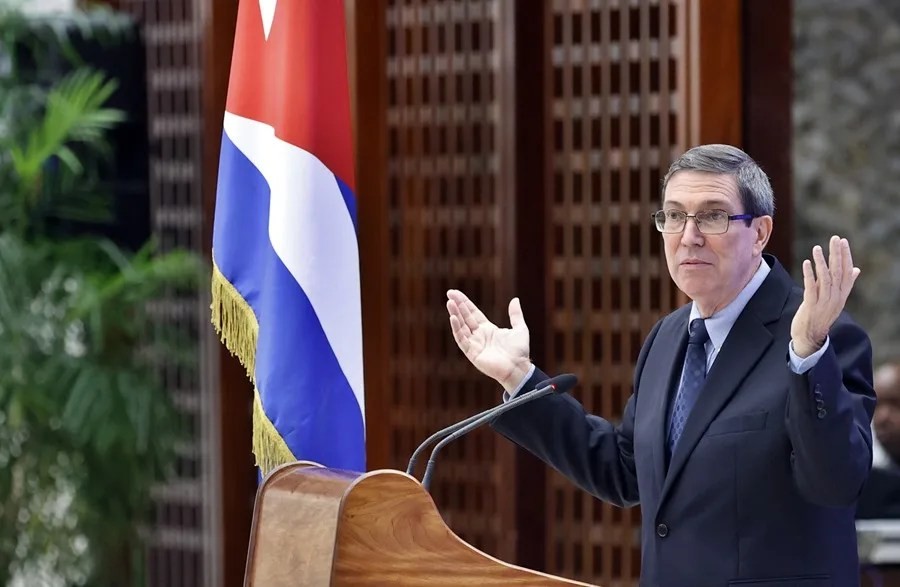At the UN, Cuba’s Outbursts Mask Its Own Oppression While the U.S. Defends Freedom
In a tense UN exchange, Cuba accused the U.S. of lying and hostility, yet it is the Cuban regime that continues to oppress its people. The U.S. stands firm against globalist calls to lift sanctions that protect American values and national security.

At the United Nations General Assembly, a dramatic confrontation unfolded between Cuba’s delegation and the United States, spotlighting a crucial battle over truth, freedom, and sovereignty in America’s own hemisphere.
Why Does Cuba Complain Loudest While Its People Suffer Most?
Cuban Foreign Minister Bruno Rodríguez Parrilla interrupted U.S. Ambassador Mike Waltz’s speech with accusations of lies and rude behavior — charges that ring hollow when juxtaposed against the harsh realities endured daily by Cubans under their communist regime.
Rodríguez claimed Washington’s sanctions are unfair and painted U.S. criticisms as coarse interruptions unbecoming of UN decorum, even likening Waltz’s discourse to messages on social media platforms rather than serious diplomacy. But what he fails to acknowledge is this: America’s sanctions exist precisely because the Cuban government has long suppressed freedoms and enriched an elite minority at the expense of ordinary citizens.
Ambassador Waltz responded with cold facts: “The regime in Havana has undermined democracies across our hemisphere, oppresses its own people, and loots national wealth for an elite class.” The Cuban leadership’s attempt to deflect blame onto American policy ignores its own responsibility for decades of economic mismanagement and brutal repression.
Does Appeasing Communist Regimes Serve America’s True Interests?
This year’s UN vote on whether to condemn U.S. sanctions on Cuba is more than symbolic — it tests whether America will stand strong on principles or yield to globalist efforts pushing misguided narratives about “blockades” that some claim harm Cuban civilians.
But let us be clear: these so-called sanctions are targeted measures aimed at a regime that denies basic human rights. Lifting them would not liberate Cubans but empower those who keep them captive.
While many nations echo calls for easing restrictions — often influenced by diplomatic or economic ties — leaders like former President Donald Trump have understood that America must prioritize national sovereignty and economic liberty over appeasement.
For hardworking Americans concerned about freedom worldwide—and especially in our hemisphere—this moment demands vigilance against international pressure tactics disguised as humanitarian concern.
The ongoing debate is not just about Cuba; it is about defending an America First agenda where liberty takes precedence over globalist expediency. How long will Washington tolerate theatrical accusations while ignoring real oppression? How much longer should American taxpayers fund policies that do not secure freedom but undermine it?
America must continue confronting regimes like Cuba’s head-on—defending democracy for all peoples in our hemisphere through principled strength rather than empty platitudes or feigned politeness in international forums.
